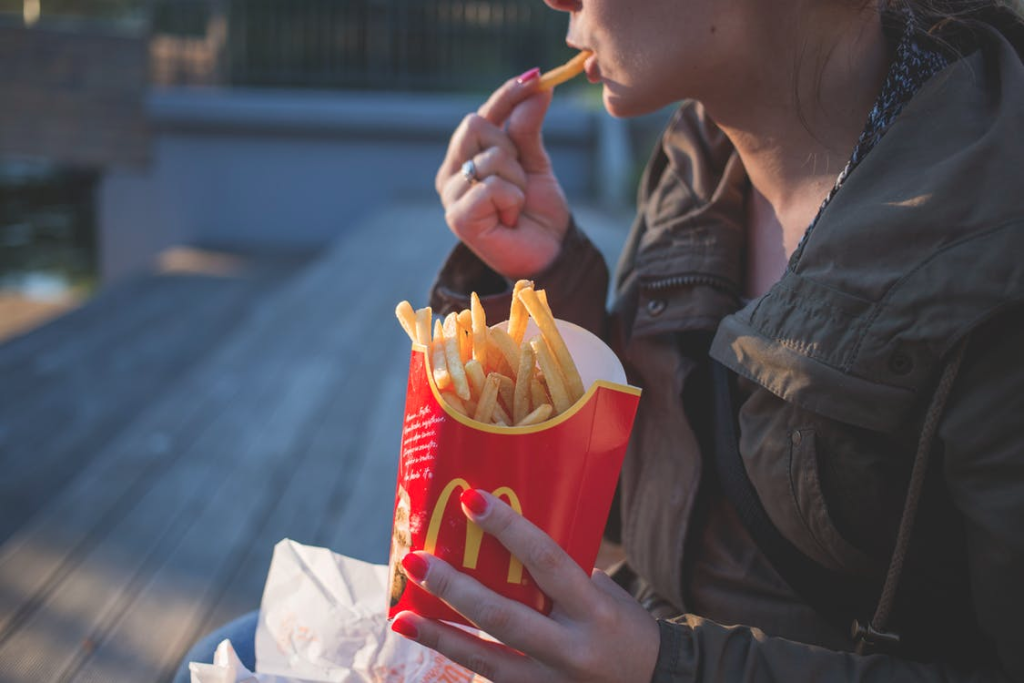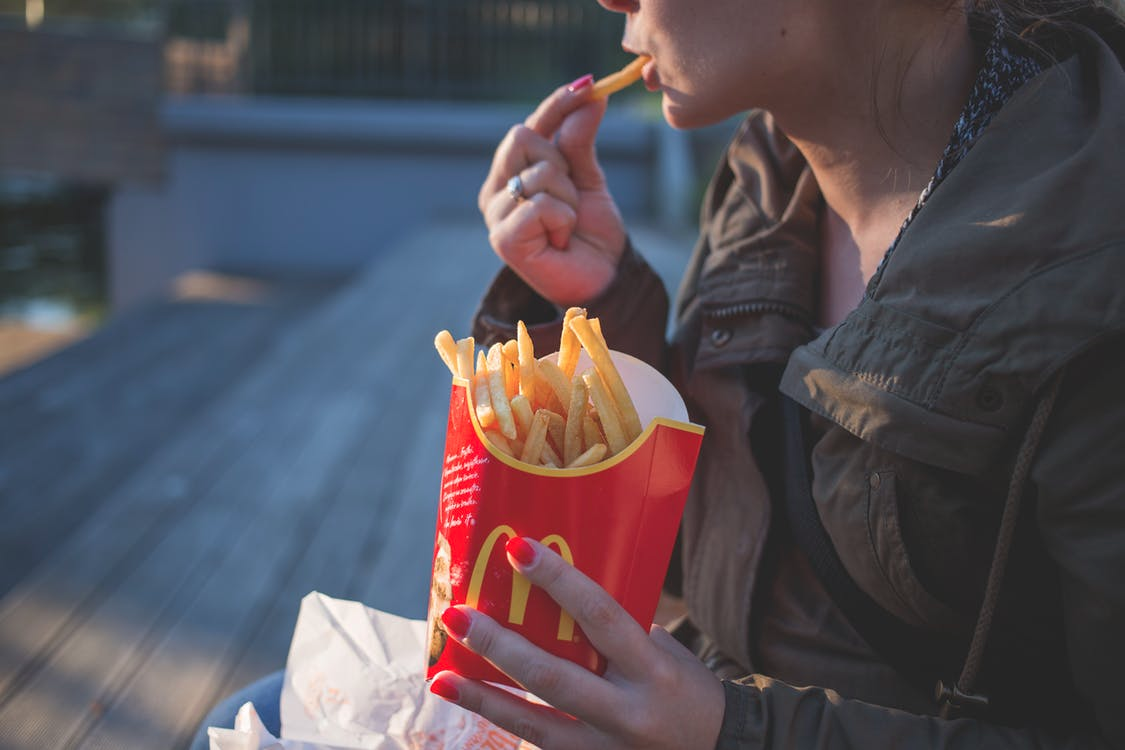
Sometimes it’s hard to make a distinction between actually being hungry and having an emotional response to something. It’s important to stop and think about what you’re eating, why you’re eating, and how much you’re eating. It’s also important to pay attention to how you’re feeling while you’re eating and after.
Actual physical hunger will come on gradually and can be postponed if necessary. It can be satisfied with just about any type of food and once you’re full, you’re able to stop eating. Once you’re finished eating, you will feel satisfied, not guilty. When you’re feeling emotional and reacting to those feelings, you may suddenly get specific cravings, especially for fatty or sugary foods, and the feeling will seem sudden and urgent. You may also eat more than you need to and end up feeling uncomfortably full. This causes you to feel guilty and bad about yourself.
Emotional eating is very common and all of us experience it sometimes. If you overeat due to being stressed, upset, angry, or even excited, you shouldn’t beat yourself up over it. Just make sure it doesn’t become a habit. It’s not healthy to overindulge but it’s not the end of the world if it happens. What IS actually a problem is if it becomes a crutch and a regular thing. That can lead to serious problems such as obesity, heart disease, and other illnesses.
Take some time to examine your eating habits and how they are making you feel. If you see any signs of emotional eating in your diet, start a food journal and keep track of what you are eating and how often. This can help you control what you’re consuming and stop your bad habits before they get out of hand. It may seem difficult or restrictive at first but eventually it will become second nature to consider what you’re putting into your body. It’s important to maintain a balanced diet in addition to physical activity. This will keep you feeling good and looking good, too!

